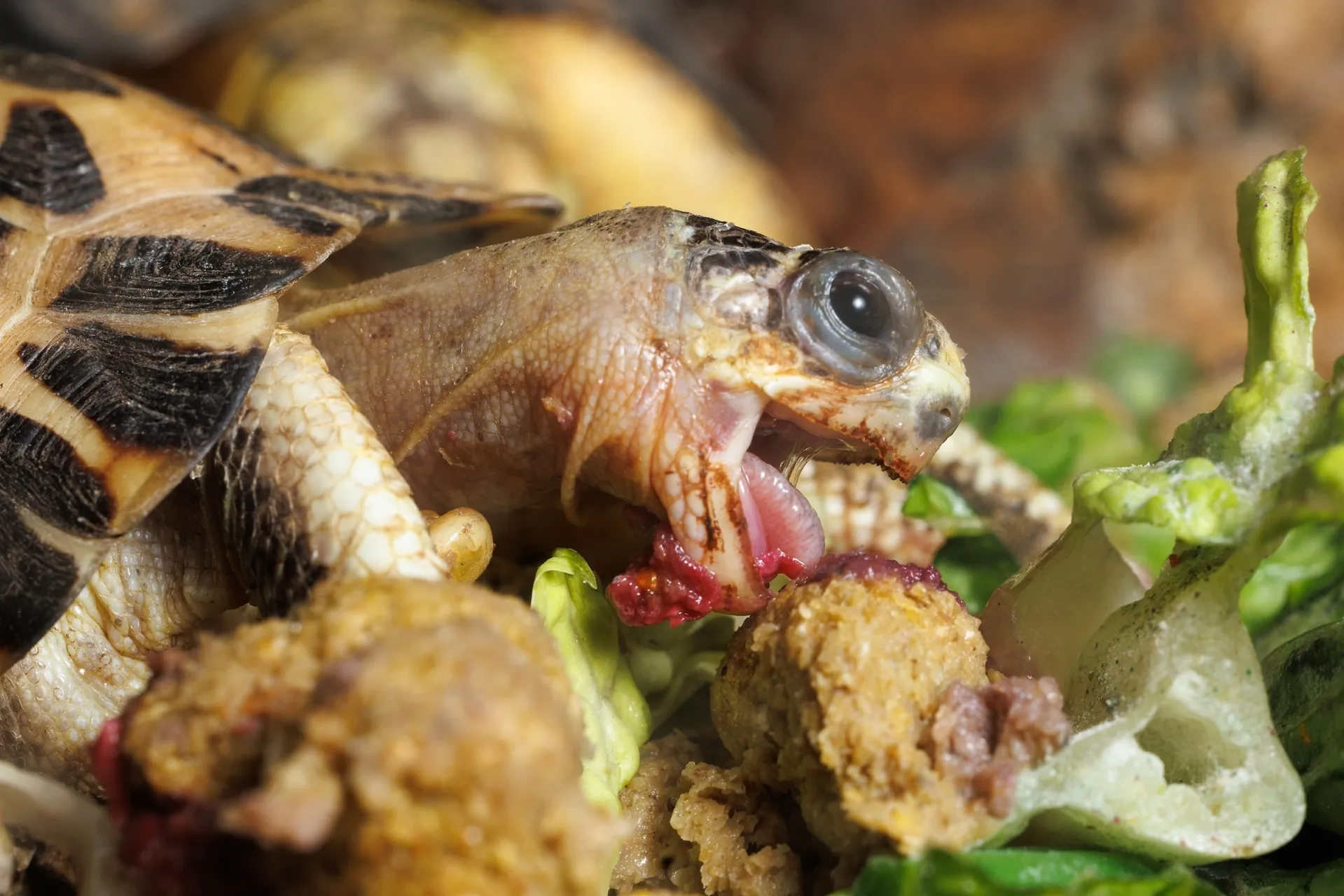Chattanooga, Tenn. (Nov. 20, 2023) – In the lead-up to Thanksgiving evening, many home chefs spend hours putting together a mouth-watering, table-bending spread for their loved ones, but at the Tennessee Aquarium, animal care specialists have to prepare an expansive smorgasbord every day.
So if feeding a house full of hungry relatives seems like a daunting task, imagine catering a party of thousands for an entire year. (Then, feel free to breathe a sigh of relief.)
Hundreds of species thrive within the Aquarium’s two buildings and at off-site locations like the Tennessee Aquarium Conservation Institute and Animal Care Facility. Each animal has specific dietary needs, whether fruits, veggies, restaurant-quality seafood or — yes — insects by their hundreds of thousands. To provide for the 12,000-strong residents of its living collection in 2022, the Aquarium spent almost $185,000 on a grocery list that would impress even the most-accomplished chef.
While some of the preferred foods of the Aquarium’s animals might seem familiar —or even have a place on your own plates this holiday season — there are many delicacies that only a sea turtle could love.
Here’s a peek at some of the surprising line items on a grocery list that has to satisfy the likes of Red-bellied Piranha, Electric Eels, Ring-tailed Lemurs, Gentoo Penguins, and Giant Pacific Octopuses in equal measure:
- 12,444 pounds of capelin (a small cold-water fish)
- 6,624 heads of romaine lettuce
- 425 quail
- 210 pounds of zucchini
- 306,000 crickets
- 480 pounds of herring
- 405 pounds of carrots
- 2,160 pounds of white shrimp
- 9,984 ounces of bloodworms
- 100 pounds of peas
- 21,000 mice
- 602 heads of broccoli
- 3,440 pounds of krill
- 2,304 ounces of frozen plankton
- 125 pounds of grapes
- 400 pounds of “frog brittle”
- 75,000 mealworms
This year, horticulturists began devoting space in on-campus and off-site greenhouse facilities to growing organic fruits and vegetables destined for the animals to offset some of the Aquarium’s food cost. Months later, this farm-to-exhibit produce program benefits a wide range of species, including Amazonian Pacu, Red-ruffed Lemurs, and Desert Tortoises.
Although the Tennessee Aquarium and IMAX 3D Theater will be closed on Thanksgiving and Christmas Day, animal care experts will still be hard at work chopping, slicing, and serving up a well-balanced “feast for all the beasts.”
To learn more about the Aquarium’s in-house farming efforts, visit tnaqua.org/riverwatch/using-in-house-organic-gardening-to-feed-our-animals/
To learn more about ways to support the Aquarium’s animals and its nonprofit mission, visit tnaqua.org/donate/
